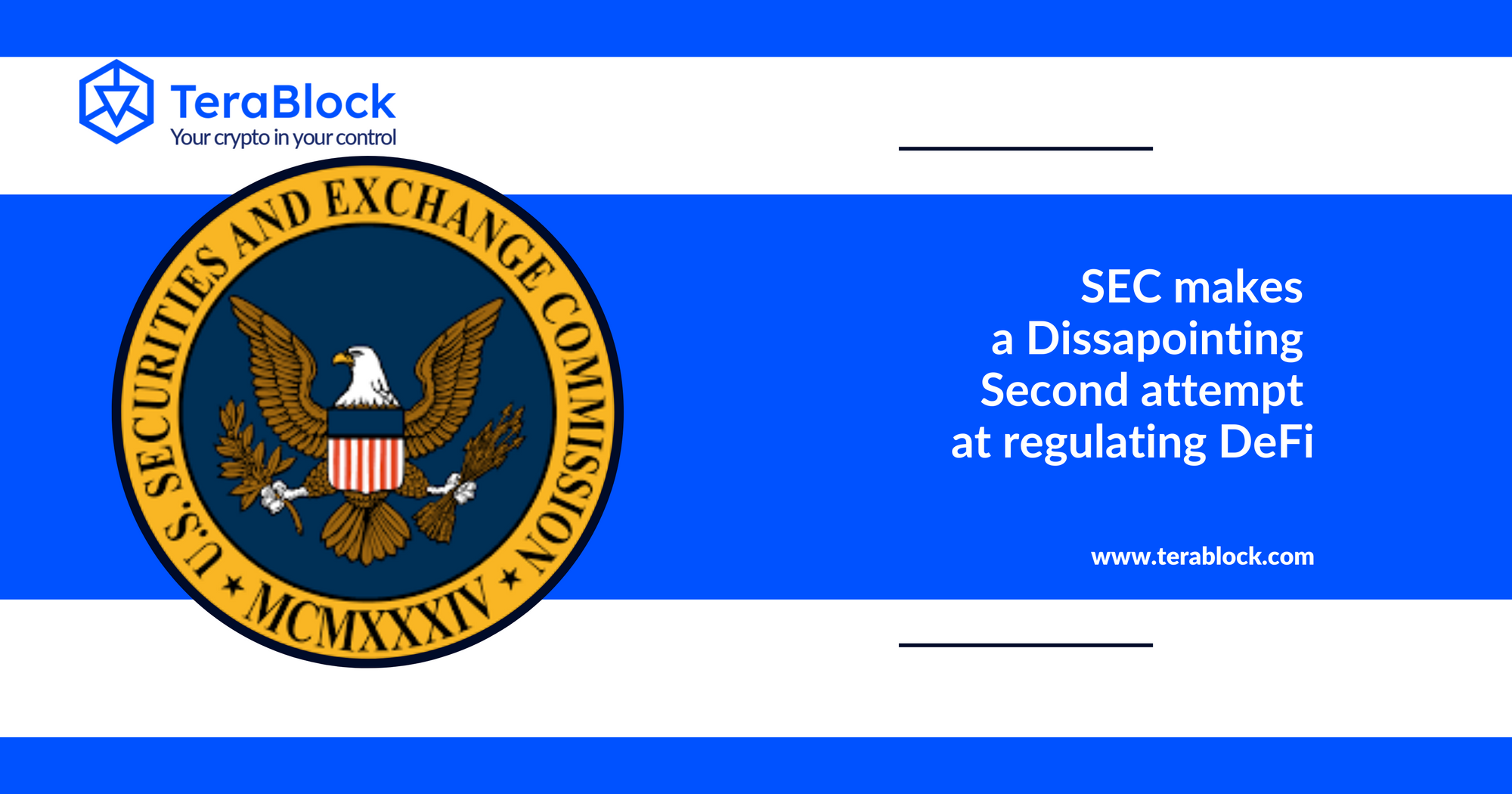Introduction
An attempt at classifying decentralised, open-source protocols as regulated exchanges is a disguised ban on blockchain in the U.S.,"
Second Attempt at Regulating DeFi
In April, the U.S. Securities and Exchange Commission (SEC) reopened the comment period for a proposed set of rules that would redefine various blockchain protocols as U.S.-regulated securities exchanges, a second try at reining decentralised finance (DeFi) from early 2022.
Critical Evaluation of the Proposal
The public has until Tuesday, June 13, to submit comments. And comment everyone should, because the fatal flaws of this proposal have only been exacerbated in this latest version.
Urgent Need for New Legislation
Alongside the SEC’s enforcement-first mindset, this attempt at rulemaking serves as compelling evidence that new U.S. legislation – (perhaps something like the recently published market structure bill sponsored by House Financial Services Committee Chair Patrick McHenry (R-NC) and Agriculture Committee Chair Glenn "GT" Thompson (R-PA) – is sorely needed.
Incompatibility with Existing Laws and Understanding of Blockchain
- Incongruity with Exchange Act and Regulations
The central problem with the SEC’s proposal is that trying to treat blockchain protocols as regulated exchanges simply cannot be squared with the Exchange Act of 1934, existing exchange regulations or an accurate understanding of blockchain technology. What would it mean for something like Ethereum to be treated as a securities exchange?
- Background on Securities Laws
To set the scene, laws regarding securities exchanges were passed to address the risks inherent in intermediated systems that bring together the orders of buyers and sellers. The U.S. Congress sought to regulate exchanges only insofar as they were centralised entities with a uniquely important role in setting market prices and otherwise affecting market conditions.
Flawed Definition of Exchanges
The SEC’s latest rulemaking proposal – which, again, is open to comment – treats exchanges as any system that merely sets up potential buyers and sellers, allowing them to find and negotiate transactions with each other.
Failure to Recognize Functions of Blockchain Protocols
The SEC quite surprising, needs to consider what an exchange does properly. To be an exchange, the law typically requires that an entity conduct functions commonly performed by a stock exchange. But the SEC disagrees, having apparently misapplied the standard statutory interpretation. Worse, the agency needs to identify a single function a blockchain protocol performs that is akin to a stock exchange.
Ambiguities in Determining Regulatory Responsibilities
If this was not enough, the proposal trips over itself, explaining who may be considered part of an exchange. It lists a few “important factors” of indeterminate weight that offer no real notice and only raise more questions as to what all this actually means for anyone participating in the blockchain ecosystem.
International Implications
In particular, the proposal does not explain the threshold of “significant” token ownership at which blockchain users suddenly obtain sufficient control over the system to assume regulatory responsibilities. Nor does it address the circumstances when a service provider or third-party vendor begins exercising enough authority to become responsible – alongside its clients – for a protocol or application.
Impact on Global Blockchain Participation
Making matters more complicated, so-called groups who participate in protocols will almost always involve persons based outside the United States. That matters because U.S. securities laws generally do not apply extraterritorially. The SEC even recognises this circumstance in passing yet offers no analysis of how its proposal would affect groups that include overseas actors. This is a severe uncertainty that significantly distorts blockchain participation around the world.





